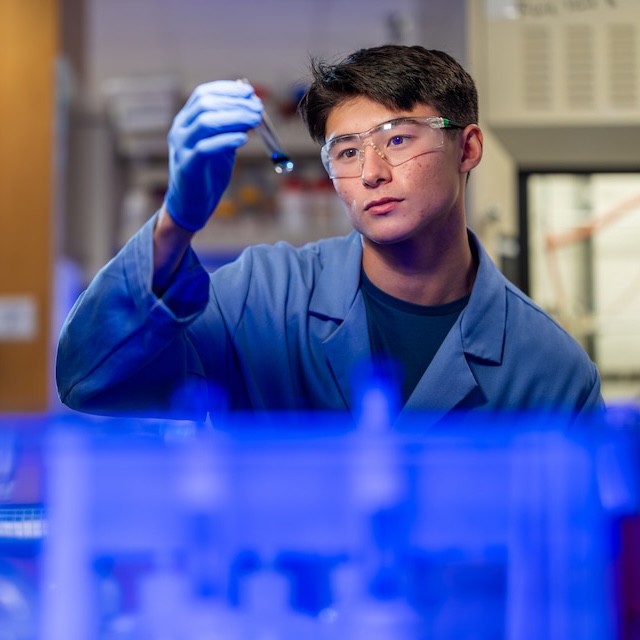Chemistry
Understand the world at the molecular level.

Chemistry is often referred to as “the central science” because of its pivotal role in all sciences dealing with matter, including biology, physics, psychology, engineering and medicine. As a chemistry major you’ll take practical classes demonstrating chemistry’s relationship with other natural sciences, and explore its applications in medicine, engineering, business and law. You’ll get experience with modern laboratory equipment that will allow you to solve complex problems.
Contact
- chemistry@tcu.edu
- 817-257-5851
Programs Offered
Sample Courses
- Organic Chemistry
- Physical Chemistry
- Advanced Inorganic Chemistry
- Quantitative Analysis
View Courses & Degree Requirements

Core Curriculum
Your success is at our Core. TCU’s Core Curriculum prepares you to live and work in today’s ever-evolving diverse and global society. It encourages you to be intellectually curious and ask big questions about the world and your place in it.
Special Admission Requirements
There are no special admissions requirements for this program.
Our Faculty
Our faculty comprises leaders, scholars and teachers with diverse research backgrounds and experiences — from studies of nanoscale materials based on elemental silicon to exploring new synthetic methods — and a number of complex focus areas in chemistry and biochemistry. Meet our faculty.
What Sets Us Apart
We train our majors broadly across all areas of the “central science” with significant coursework opportunities in biological, organic, inorganic and physical chemistry. You’ll have opportunities to intern with local companies or industrial and government research labs, like the National Institutes of Health.
Career Prospects
Our chemistry graduates pursue advanced study in chemistry, medicine, law, journalism and business and land technical positions in industrial or governmental research labs.
Related Academic Programs

John V. Roach Honors College
Exceed your own expectations. Incoming and current undergraduate students of every major may apply. Unique classes are offered which connects students with a varied curriculum that is stimulating, supportive and cross-disciplinary.